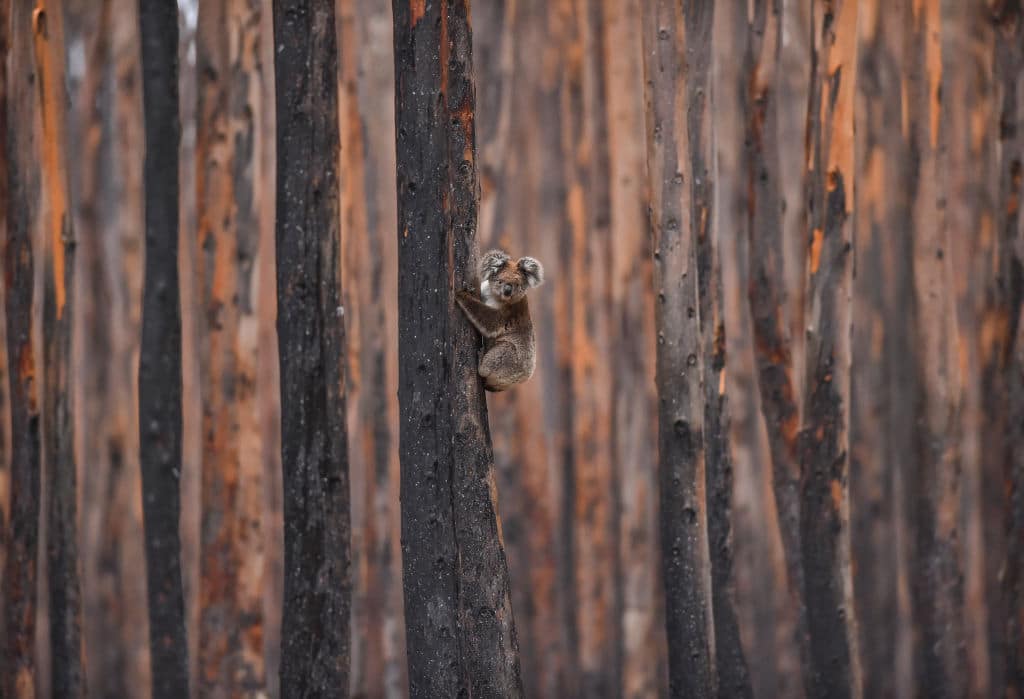
Beloved Symbol of Australian Wildlife, Koalas Officially Become Endangered Species

The Australian government has declared the koala — a symbol of Australian wildlife throughout the world — “endangered” following a drastic decline in their population due to bushfires, drought, disease and loss of habitat.
The Threatened Species Scientific Committee recommended that the conservation status of koalas be upgraded to endangered in New South Wales (NSW), Queensland and the Australian Capital Territory. The recommendation was accepted by Environment Minister Sussan Ley, who said that the government also planned to adopt a national recovery plan for the beloved marsupial, The Guardian reported.
“It’s a cue for governments really to take a stand against continued habitat clearing for koalas. We can’t just continue business as usual,” said senior campaign manager at Humane Society International (HSI) Alexia Wellbelove, as reported by The Guardian.
The recovery plan identifies the main threats facing koalas and the actions that are necessary to prevent their extinction. While governments aren’t obligated to implement the recovery plan, ministers can’t legally make decisions that are inconsistent with the plan once it’s been adopted.
A New South Wales parliamentary inquiry found that koalas would become extinct there by 2050 unless urgent action was taken by governments to protect their habitat.
Koalas were nominated for the endangered listing by the International Fund for Animal Welfare, WWF-Australia and HSI, who have been advocating for their conservation status to be upgraded for a long time.
“The koala has gone from no listing to now being declared endangered on the Australian east coast within a decade,” said WWF-Australia chief executive Dermot O’Gorman, The Guardian reported.
“That is a shockingly fast decline for one of the world’s most iconic animals. The endangered status is a grim but important decision by minister Ley,” O’Gorman said.
The Threatened Species Scientific Committee has estimated that koala numbers have fallen from 185,000 in 2001 to 92,000 in 2021, reported Phys.org.
“Australia’s national environment laws are so ineffective they have done little to stem the ongoing destruction of koala habitat in Queensland and NSW since the species was supposedly protected a decade ago,” said Australian Conservation Foundation nature campaign manager Basha Stasak, as Phys.org reported.
Former chairman of the Australian Competition & Consumer Commission Graeme Samuel found that the duty to protect the environment had not been carried out by Australian governments and that this had caused the country’s wildlife to suffer, reported The Guardian.
Among Graeme’s many recommendations for reshaping the Environment Protection and Biodiversity Conservation Act 1999 was a proposal for new national environmental standards requiring clear results for Australia’s animal and plant life, as The Guardian reported currently and at the time.
“Until such time that we have strong national environmental standards that specify no-go areas around critical habitat for species such as the koala, habitat destruction will continue and this must be addressed urgently,” said Wellbelove, as reported by The Guardian.
Chairwoman of the Australian Koala Foundation Deborah Tabart said koalas’ status of endangered “doesn’t mean anything,” The New York Times reported. Tabart went on to say that the federal government “may be offering our koalas a nice new word, but behind all the photo opportunities and political rhetoric they continue to approve the destruction of the koala habitat.”
“If the clearing of the koala habitat continues,” said Tabart, “a further status change is imminent — from endangered to extinct.”
O’Gorman said there was still time to save koalas if the endangered listing serves as a catalyst for much-needed action.
“There is still time to save this globally iconic species if the uplisting serves as a turning point in koala conservation. We need stronger laws and landholder incentives to protect their forest homes,” said O’Gorman, as The Guardian reported.

 233k
233k  41k
41k  Subscribe
Subscribe 